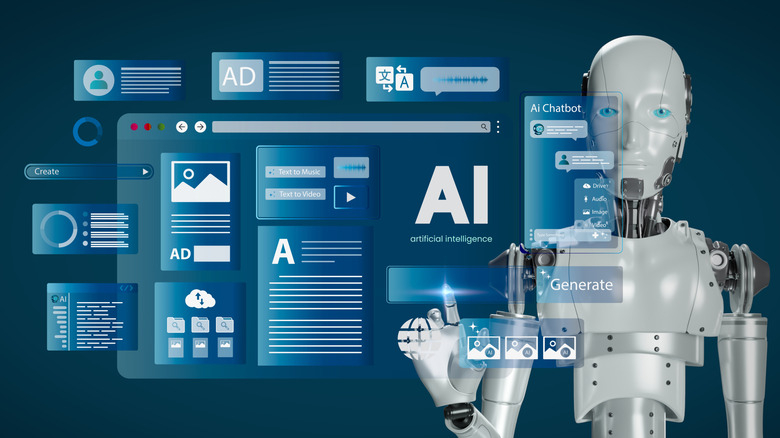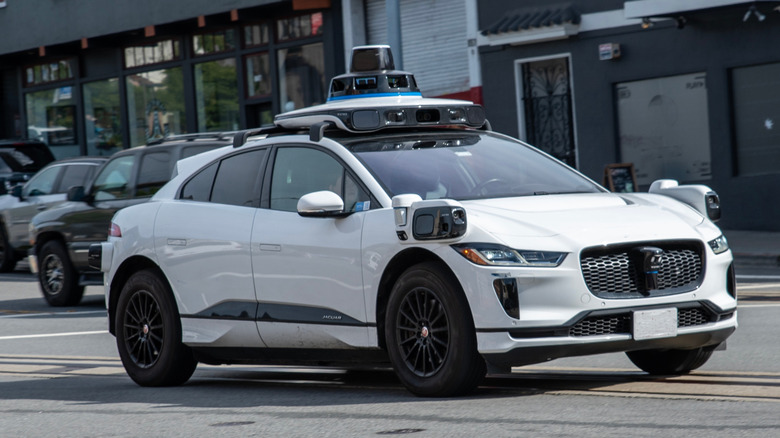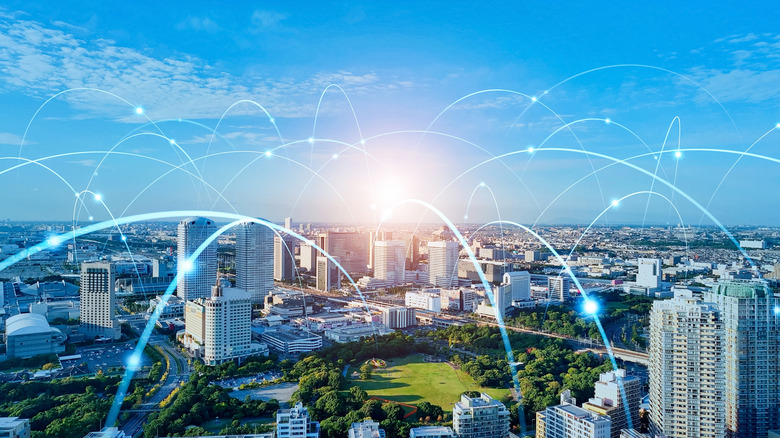What Is Agentic AI & How Might It Change How The World Works In The Future?
If films and TV have taught us anything, it's that the future ought to be full of autonomous, sentient robots. C-3PO, Jarvis, Bender, and Rosie the Robot from "The Jetsons" didn't just sit around waiting to be given their next prompt. They took action. We're not yet living in a world full of human-like robots or sentient operating systems like Samantha in "Her." However, technology is inching us closer to that dream (or nightmare) every day.
Agentic AI is the next big development in artificial intelligence. Unlike chatbots or large language models (LLMs) like ChatGPT, which require human commands, it employs AI agents to operate independently, make decisions, adapt, learn, and act autonomously. When you give it an objective, the AI agent uses a LLM to understand what it needs to do. It creates a task list, working out what it needs to do and the order it needs to do it in then, it starts looking for information via the internet or other systems in its network. It learns as it goes, so it can improve its strategy as it progresses.
It will work through its tasks as many times as it needs to until it achieves the objective it has been given. Imagine an AI personal assistant who could plan a two-week European vacation within a $5,000 budget by researching flights, accommodations, and itineraries, refining options based on your preferences and feedback. It would use internet searches and external systems to optimize the plan, iterating until the trip is fully booked and tailored to your needs.
How is Agentic AI currently being used?
Self-driving cars are one of the most visible examples of Agentic AI in action. Waymo's autonomous driving systems use Agentic principles to navigate complex environments, make real-time decisions, and adapt to changing traffic conditions without human input. This level of automation is limited to users in Phoenix, San Francisco, or Los Angeles. However, Agentic AI is also being employed in semi-autonomous cars with collision avoidance and lane-keeping features.
Agentic AI isn't just limited to cars, though. It's already being used in business, healthcare, science, and software development. The business software company Salesforce released a new product, Agentforce, in 2024, an Agentic AI platform that allows companies to create customized AI agents to run parts of their business like customer support or sales processes. In the financial industry, some companies are using Agentic AI to manage banking tasks. For example, Bud Financial uses AI agents to automatically move customers' money to take advantage of better interest rates and to avoid unnecessary overdrafts. Hippocratic AI provides Agentic AI apps to healthcare professionals. There are around 200 different agents, each with its own human avatar and name, covering areas ranging from lifestyle change counseling to dialysis onboarding.
Agentic AI software developers, such as Devin, can autonomously complete coding requirements step-by-step, including planning, coding, debugging, and deployment. In his keynote speech at last year's CES (formerly known as the Consumer Electronic Show), NVIDIA CEO Jensen Huang said that using Agentic AI in software development is going to be "the next giant AI service" and that "everybody is going to have a software assistant helping them code."
What's next for Agentic AI and can it change how the world works in the future?
You can now build your open AI Agent using sites like Zapier and Microsoft Copilot Studio. OpenAI is set to launch its own Agentic AI called Operator by the end of January 2025. Anthropic's Claude 3.5 Sonnet LLM already uses Agentic AI for coding and API integration. You can expect to see a lot more Agentic AI in use in the near future, including hybrid systems that combine Agentic AI with human oversight. In the future, Agentic AI systems may function as part of interconnected networks, collaborating with other AI agents to achieve larger, system-wide objectives. In smart cities, for instance, traffic management AIs, energy optimization systems, and public safety agents could work in unison.
How successful these agents are will depend on how well AI agents manage to complete their objectives and handle unexpected or incorrect results. It will also require people to be willing to hand over sensitive data. Would you be comfortable handing over your financial or medical details to an AI agent? Advancements in Agentic AI will present new legal challenges, and regulators will need to address ethical concerns around accountability.
Perhaps, Agentic AI could offset its own environmental impact by monitoring ecosystems and finding workable solutions to combat climate change. At this early stage, we don't know how far-reaching the effects will be and to what extent these advancements will pose ethical and philosophical challenges. Is an AI system accountable? If not, who is ultimately responsible for its actions, and can you really have agency without accountability? How to balance technological benefits with ethical and social considerations is a pretty big question that we haven't yet found the answer to.


